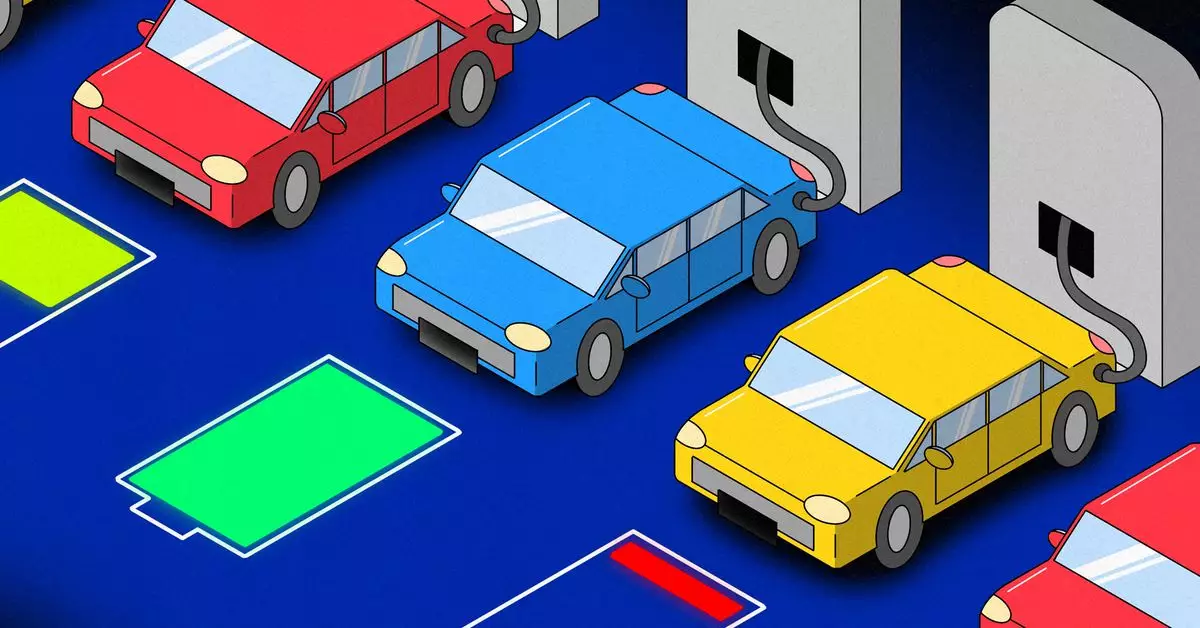When it comes to electric vehicles (EVs), the common narrative is that they are low maintenance compared to traditional gas-powered vehicles. No more oil changes, fewer moving parts, and less gunk to worry about – sounds like a dream, right? However, the reality is not as simple as it seems. EVs are essentially like giant computers on wheels, and as we all know, computers are not immune to problems.
JD Power Study Findings
The latest quality study by JD Power sheds some light on the maintenance issues plaguing EV owners. The study reveals that battery-electric and plug-in hybrid vehicles are performing worse than their gas-powered counterparts in almost every repair category. According to the survey, EV owners reported 266 problems per 100 vehicles, compared to 180 problems per 100 vehicles reported by internal combustion vehicle owners. These problems are not related to the mechanical components of EVs like motors and batteries, but rather stem from the intricate tech systems integrated into these vehicles.
It is essential to separate Tesla from the rest of the pack when discussing EV maintenance issues. While Tesla has typically outperformed legacy automakers in past JD Power surveys, the gap has been closing in recent times. Major design changes in Teslas, such as the removal of traditional feature controls, have contributed to the maintenance challenges faced by Tesla owners. Moreover, the proliferation of advanced driver-assist systems and infotainment touchscreens in EVs has led to a surge in reported problems, with EVs experiencing 30 percent more issues with “Features, Controls, and Displays” compared to gas-powered vehicles.
The increase in tech-related problems in EVs has left customers feeling frustrated. False rear-seat warnings, inaccurate alerts, and connectivity issues with smartphones are just a few of the common grievances reported by EV owners. JD Power’s findings indicate that customers are seeking a seamless integration of their smartphone experience into their vehicles, but are encountering obstacles in doing so. On the other hand, brands that boast the least number of problems tend to attract more repeat buyers. For instance, Ram is rated number one in the survey due to the brand’s loyal customer base, who report fewer problems with their vehicles compared to those who opt for newer or less familiar brands.
The Transition to High-Tech Vehicles
As the automotive industry undergoes a monumental shift from gas-powered vehicles to high-tech EVs, customers find themselves caught in the middle of this transition. The switch from traditional vehicles to computerized systems running on massive batteries is proving to be a challenging one. The rush to integrate cutting-edge software and technology into EVs is causing a myriad of problems for owners, highlighting the growing pains associated with this industry-wide transformation.
The notion that electric vehicles are low maintenance is not entirely accurate. While they may offer certain advantages over gas-powered vehicles, EVs come with their set of challenges, particularly in the realm of tech-related issues. As the automotive industry continues to evolve, addressing these maintenance concerns will be crucial in ensuring a seamless and satisfactory ownership experience for EV owners.


Leave a Reply